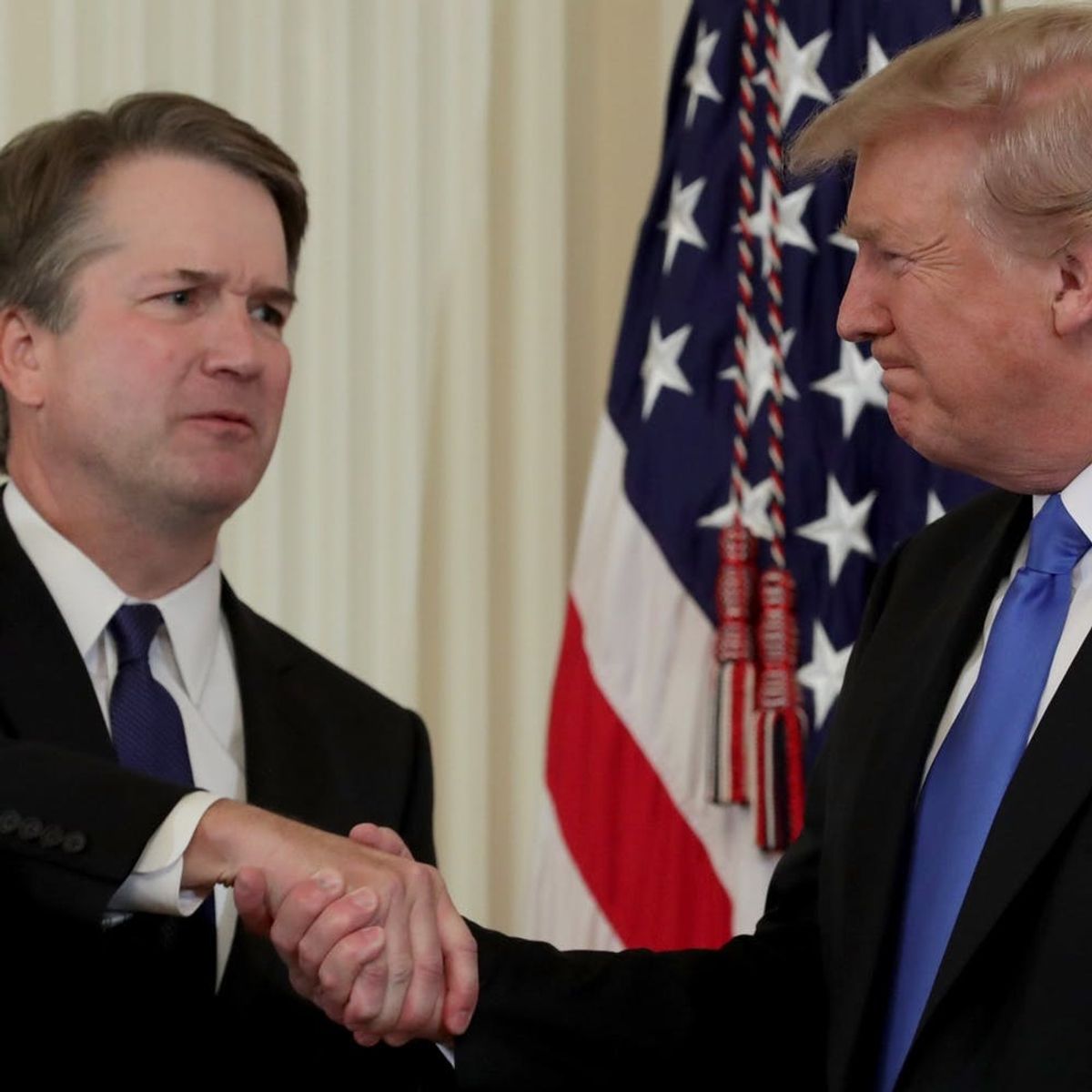Trump named Kavanaugh as his pick to replace Justice Kennedy.
What to Know About Brett Kavanaugh, Trump’s New SCOTUS Nominee

President Donald Trump, who has already placed one SCOTUS justice on the bench, has named another nominee for the Court following Justice Anthony Kennedy’s retirement announcement. On Monday evening, Trump announced Brett Kavanaugh, a judge nominated by George W. Bush to the DC Circuit of the US Court of Appeals, as his choice to replace Kennedy.

Kennedy was often considered the swing vote on a Court that has been relatively balanced across party lines for years, but that is soon to change. With the new addition of Trump nominee Neil Gorsuch, a staunch conservative, and the Senate’s likely approval of Kavanaugh, liberals on the Court will be solidly outnumbered by conservatives. The impacts of Trump’s selections for the SCOTUS will be felt for decades to come.
It was a given that Trump would nominate another strict conservative to the Court, but some of Kavanaugh’s opinions as a judge are particularly worrisome in our current political climate. For weeks, activists and concerned citizens around the country have been protesting against the Trump administration’s “zero tolerance” immigration policy and family separations at the US-Mexico border, a cause Kavanaugh will likely not be sympathetic to.
Last year, Kavanaugh ruled against allowing an undocumented teenager to have an abortion she was seeking. Ultimately, Kavanaugh was overruled and the teen was able to have an abortion, but Kavanaugh’s opinion on the matter is alarming in terms of both immigrant rights and reproductive rights.
Before Kennedy even announced he was retiring from the Court, reproductive rights activists have been sounding the alarm on the vulnerability of Roe v. Wade under the Trump administration. Now that Kennedy is gone, many advocates and observers feel certain that Roe will be overturned, which would severely limit safe access to abortion for millions of patients.
Kavanaugh’s nomination was met with praise by anti-choice conservatives in Congress, including Senate Majority Leader Mitch McConnell. McConnell called Kavanaugh a “superb choice” for the SCOTUS, according to NPR. Republican Senator John McCain also gave Trump a pat on the back for nominating Kavanaugh, saying, “In selecting Judge Brett Kavanaugh to fill the vacancy left by Justice Kennedy, President Trump has chosen a nominee with impeccable credentials and a strong record of upholding the Constitution,” ABC News reports.
But some Republicans have already said they may not vote to confirm Kavanaugh. Senator Susan Collins from Maine and Lisa Murkowski from Alaska, both pro-choice Republicans, have said they will not vote to confirm a justice who would overturn Roe. According to the Atlantic, Murkowski said she would not vote to confirm a nominee “who demonstrated hostility to Roe v. Wade.”
On the Democratic side of the aisle, a large number of Congressional Democrats have already said they will not vote to approve Kavanaugh. NPR reports that Senate Majority Leader Chuck Schumer said in a statement that he “[will] oppose Judge Kavanaugh’s nomination with everything I have, and I hope a bipartisan majority will do the same.”
Still, there’s a (small) Republican majority in the Senate, which means significant dissent from the right would be needed in order to block Kavanaugh. Thus far, most Republicans and even some Democrats have fallen in line with Trump’s agenda: Three Democrats voted to confirm Justice Gorsuch. So while Kavanaugh will surely be tossed some hardball questions during his confirmation hearings, all signs point to him filling Kennedy’s spot on the Court.
What do you think? Tell us on Twitter @BritandCo.
(photo via Chip Somodevilla/Getty Images)

















